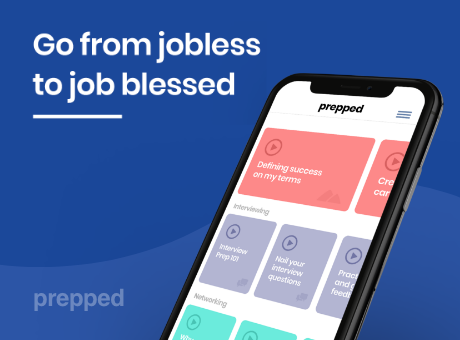If you find job interviews a) awkward, b) scary, c) stressful, or d) all of the above, trust us – you’re not alone. After all, while you can take your time sprucing up your resume and crafting a killer cover letter, interviews literally put you on the spot and that can be pretty nerve-wracking. Especially if you’re hit with interview questions that you don’t know how to answer.
While it’s impossible to predict all the interview questions that you’ll be asked, most interviews will include a few that you can prep for in advance. Below are some of the most common interview questions and tips on how to answer them.
1. Tell me about yourself.

On the surface, this seems like an easy question. It’s open-ended and you can talk about pretty much anything you want. Right?
Wrong. Your interviewer has a limited amount of time to speak with you and doesn’t want your entire life story. To knock this question out of the park, keep your response to roughly two to three minutes. Specifically talk about what life, work, or school experiences have prepared you for the position.
The key here is to be as specific as possible. For example, if you’re applying to a job at an eco-friendly company, rather than simply saying that you’re passionate about the environment, you could talk about how you organized a campus clean-up or volunteered at a local community garden. In short, “Tell me about yourself” does not mean talk about anything and everything. It means talk about what makes you the best person for the job.
2. Have you ever had a conflict with a boss or professor? How did you handle it?

You can probably tell right away why this question is a tough one. Interviewers know that not every work environment is sunshine and rainbows. But if your response skews too negative, you might come across as a whiner.
The best way to answer this question is to briefly address the conflict but focus more on how you resolved it. Use the STAR approach to outline your response: talk about a specific Situation or Task (S-T), the Action you took (A) and the Results achieved (R).
The most important thing to remember is to choose an example that highlights your resourcefulness. Employers are looking for team players and problem solvers. Nailing this question will show your interviewer that you’re the full package.
3. What’s your biggest weakness?

This one’s difficult. You want to respond honestly but you also don’t want to give an answer that would make your interviewer doubt your ability to do the job or get along with your coworkers.
So how do you navigate this tightrope of a question? First of all, don’t try to dodge the question by saying you don’t have any weaknesses or you’re too much of a perfectionist. Instead, be honest, positive, and focus on what you’re doing to improve. For example, if you know you struggle with overcommitting and taking on too much, you can talk about how you now use a planner to help you schedule your tasks.
4. Where do you see yourself in three to five years?

If you’re still in school or a recent graduate, this can be a tricky one. Chances are, you don’t have the next half-decade of your life planned out and are open to a lot of different opportunities.
Responding to this question with “I don’t know” might make you look like a flake and have your interviewer wondering how long you’ll stay at the job. Conversely, it’s just as important to keep your goals realistic. While you might want your potential boss’ job someday, you likely won’t reach that level in five years.
The best way to answer this question, especially as an entry-level candidate, is to focus on learning and gaining experience. Another good way to approach this is to leave job titles out of the conversation and talk about the kind of employee you want to be. For instance, do you want to be someone who’s known for being a connector? Or perhaps the person who always has innovative ideas? This is a great time to talk about some of your soft skills.
5. What are your salary expectations?

Ah, the dreaded money question. Salary negotiation can be awkward so it helps if you’re prepared. First things first, do your research. Learn about the company, their market, and the average salary for the job. Whatever you do, resist the urge to blurt out this number right off the bat.
Wait for the employer to give a range, and when they ask you for the figure you expect to be making, choose a salary that is higher than the median they provide. Lastly, be confident. Even if you don’t have a lot of work experience, your knowledge, campus involvement, extra-curricular activities, and passion matter a lot to potential employers.
Now you know how to respond to some of these toughest questions…but how do you make sure you don’t freeze up on the big day? That’s easy. Prepped can help you get interview-ready in no time. This digital career coaching platform is tailored to students and new grads and offers customized learning modules on key job-hunting skills like interviewing and networking to help you launch your career.
Of course, despite doing everything you can to ace your interview, you might still get hit with interview questions that leave your mind blank. And that’s okay! You don’t have to have all the answers right there and then. But if you’re able to demonstrate that your hard-working, resourceful, and the best fit for the job (and Prepped can get you there), you’ll be raking in the job offers in no time.

Get a free personalized career plan
*Opinions expressed are those of the author, and not necessarily those of Student Life Network or their partners.

 Sponsored
Sponsored


